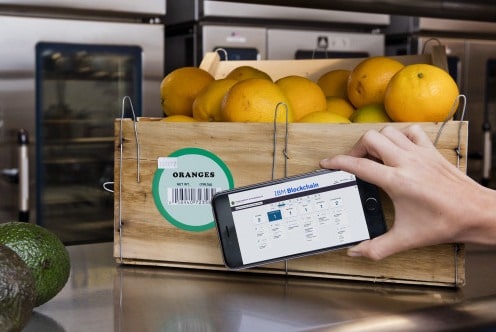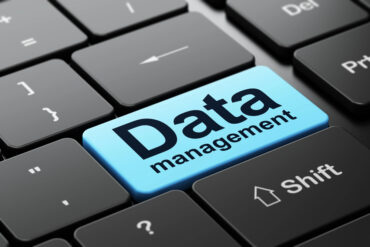In an effort to use to blockchain technology to help reduce the spread of food-borne illness, IBM will collaborate with Dole, Kroger, Nestle, Tyson Foods, Unilever, Walmart and several other organizations across the global food supply chain.

A crate of oranges being scanned as part of a food safety blockchain. (Photo credit: Connie Zhou for IBM)
Every year, 400,000 people die from contaminated food, according to the World Health Organization. The lack of access to information and traceability magnifies many of the critical issues impacting food safety – issues such as cross-contamination, the spread of food-borne illness, unnecessary waste and the economic burdens of recalls. According to the Centers for Disease Control and Prevention, it can take weeks to identify the precise point of the contamination.
To help combat these issues, a group of global food supply chain companies yesterday announced a blockchain collaboration with IBM, which is intended to further strengthen consumer confidence in the global food system.
The goal of the consortium, according to a statement released by IBM, is to help identify and prioritize new areas where blockchain can benefit food ecosystems. IBM says the initiative will draw on multiple IBM pilots and production networks in related areas that demonstrate ways in which blockchain can impact global food traceability. Members of the consortium include Dole, Driscoll’s, Golden State Foods, Kroger, McCormick and Company, McLane Company, Nestle, Tyson Foods, Unilever and Walmart.
[ Related: Blockchain and Smart Contracts: A Pilot in the Car-Leasing Business ]
By deploying blockchain technology in the global food supply chain, growers, suppliers, processors, distributors, retailers, regulators and consumers can gain permissioned access to trusted information regarding the origin and state of food for their transactions. IBM says this can enable food providers and other members of the ecosystem to use a blockchain network to trace contaminated product to its source in a short amount of time to ensure safe removal from store shelves. (See video below for a look at the food safety offering Walmart’s built on the IBM Blockchain Platform.:)
IBM’s unveils blockchain platform
In addition to the just-announced food supply chain consortium, blockchains are now being used for flowers, real estate, trade finance, education, insurance and medical services transactions, according to IBM. To accelerate this adoption, IBM announced what it describes as the “first fully integrated, enterprise-grade production blockchain platform.” Big Blue is also adding consulting services to help organizations develop, govern and operate their own business networks. The IBM Blockchain Platform is available via the IBM Cloud.
[ Related: 5 Trends Helping and Hurting Blockchain Adoption ]
IBM says the platform has been “extensively tested and piloted,” and addresses a wide range of enterprise pain points, including both requirements around security, performance, collaboration and privacy. The platform includes technology developed through open source collaboration in the Hyperledger community, including the newest Hyperledger Fabric v1.0 framework and Hyperledger Composer blockchain tool, both hosted by the Linux Foundation.
Pricing options for the IBM Blockchain Platform start at $0.50 per hour. IBM says to support blockchain ecosystems among different organizations, the cost of the network can be shared across members of the network.



























